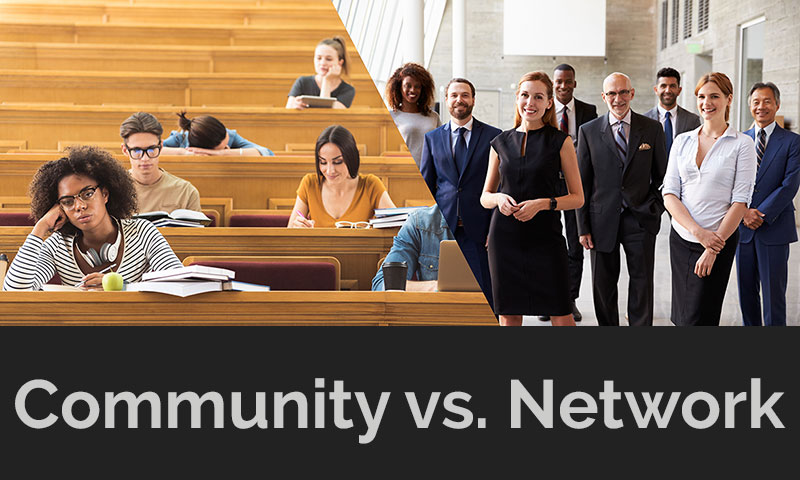
What do you think of when you hear the term “talent community”?
If you don’t know what to think, you’re not alone. The phrase has been so overused in the recruiting industry, it’s lost its meaning.
But most recruiters will agree, when they say talent community, they’re not referring to a network of people they know personally. The word network, when used properly, refers to a group of people connected through you and is much stronger than a talent community. Here’s why:
1. You Trust the People in Your Network and They Trust You
Contacting someone with whom you have a relationship or have been referred to by someone they know makes you instantly credible. You are no longer trying to sell them on a job, you’re helping them navigate their career paths. Conversely, if you’ve put the time into developing genuine relationships with the people in your network, you can trust in their interest, referrals, experience and professionalism. Simply put, recruiting from your network allows you to source the best candidates cheaper and faster. The larger and stronger your network is, the less work it will be to source qualified candidates for positions. Talent communities may mean you have a lot of contacts in an industry or area, but if you don’t have genuine relationships with them, it’s not benefiting you or your client.
2. You Can Solve for Cultural Fit
Eighty-four percent of recruiters say that culture has become the most important factor in the selection process. Culture doesn’t have anything to do with skills or experience. Matching values creates a cultural fit. When two people share values, they feel an instant connection and often refer to the candidate as a “cultural fit”. Knowing your clients’ values and what the professionals in your network value will help you match companies and candidates. While seasoned recruiters may have strategies for determining a person’s values through an online profile or a phone screen, it’s not a substitute for a personal connection with the candidate and doesn’t yield the same results. Connecting two people you know personally is the best way to ensure a cultural fit.
3. Talent Communities are Full of Recruiters
If your talent community is your LinkedIn connections, you’ve got company. Fifty-two percent of hiring managers claim that passive candidate recruitment has been less effective because recruiters on LinkedIn are all competing for the same candidates. It’s getting increasingly difficult to connect with high-quality job candidates on LinkedIn. Developing genuine relationships and becoming known in your network is a far better use of your time than trying to increase the number of connections you have on LinkedIn. When the people in your network know you and value what you offer, they take your calls, they refer you to their friends, and they help you succeed. In a talent community, you chase people. In a network, you assist them.
4. Networks Produce Better Results with Less Work
Building relationships, connecting people and looking for opportunities to add value is so much more powerful than being the quickest recruiter to fill a vacancy. Developing a network of people with whom you have long-term relationships means candidates can become clients and clients can become candidates. Changing your business from transactional to relational will change the way you source candidates and win clients. When you create a strong network rooted in relationships, your network begins to expand on its own and finding candidates and clients gets easier and easier.
5. Networks Create Opportunities
When you pursue relationships, opportunities pursue you. A network built on genuine relationships is not just a way to source candidates and find clients. A network creates a path to new opportunities you might not currently even be considering. Networks are how success leads to more success. The more people you develop authentic relationships with, the more opportunities come your way. Relationships unlock your potential. That’s something a talent community can’t do.
It’s time you stop developing a talent community and start developing authentic relationships. Invest in relationships with people, and they will invest in you.